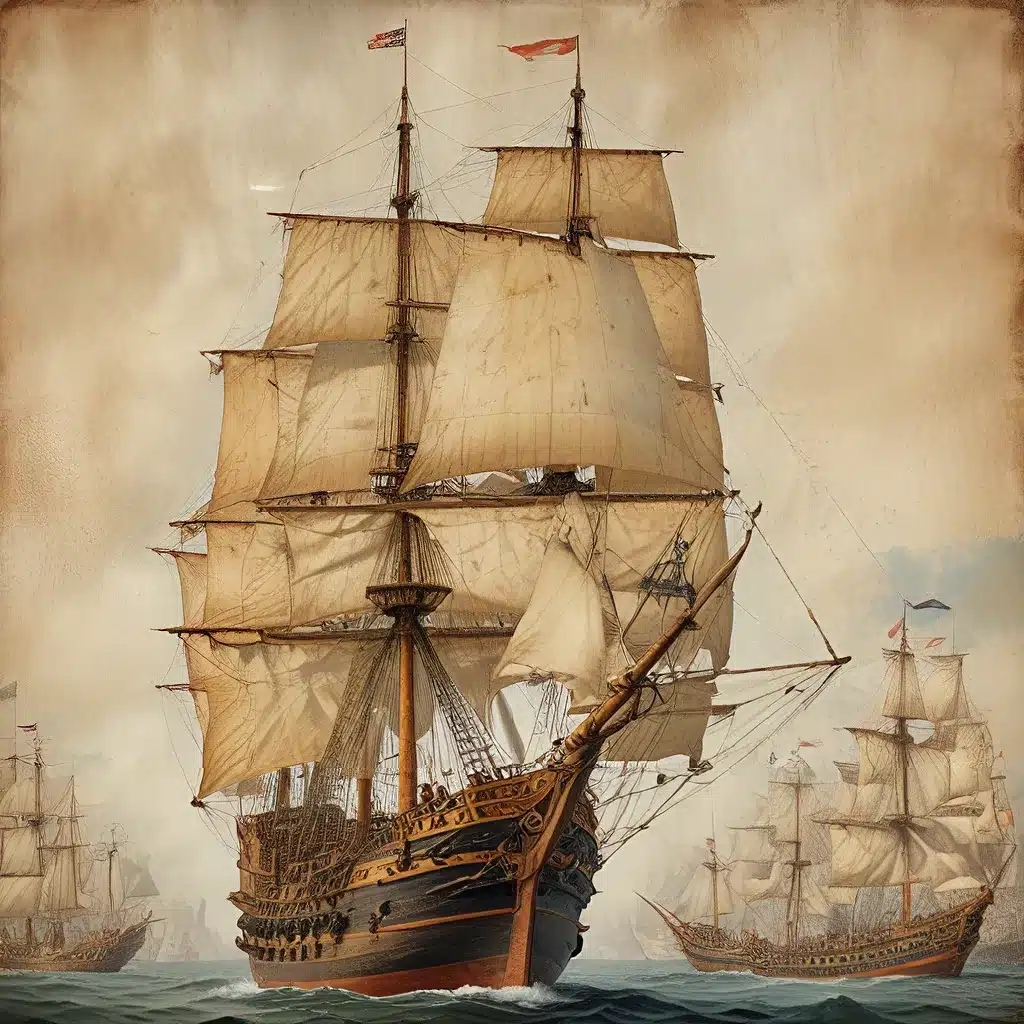
The Age of Discovery, also known as the Age of Exploration, was a transformative period in world history that ushered in an era of interconnectedness and globalization. From the late 15th century to the 17th century, seafarers from various European countries embarked on extensive overseas exploration, colonization, and the establishment of trade networks across the globe.
Navigating the Uncharted Seas: The Portuguese Pioneering Voyages
The Portuguese were at the forefront of this Age of Discovery. Under the sponsorship of Prince Henry the Navigator, the Portuguese began systematically exploring the Atlantic coast of Africa in 1418. In 1488, Bartolomeu Dias reached the Indian Ocean, paving the way for future expeditions. The Portuguese soon established a presence in the Indian Ocean, trading with various regions and dominating the lucrative spice trade.
In 1492, the Catholic Monarchs of Spain, King Ferdinand and Queen Isabella, funded the Italian navigator Christopher Columbus in his quest to reach the Indies by sailing west across the Atlantic. This led to the Spanish colonization of the Americas, which had profound and lasting impacts on the world. The Spanish and Portuguese then sought to divide the newly discovered territories through a series of papal bulls and treaties, including the Treaty of Tordesillas in 1494.
Expanding Horizons: The Voyages of Other European Powers
While the Iberian powers held a monopoly on maritime trade, other European nations, such as France, England, and the Netherlands, soon entered the race for exploration and colonization. John Cabot, an Italian in the service of King Henry VII of England, made the first of a series of English voyages to North America in 1497.
The French and Dutch also dispatched their own explorers, including Jacques Cartier and Willem Barentsz, who made significant contributions to the mapping and understanding of the American and Arctic regions, respectively. These voyages not only expanded geographic knowledge but also challenged the Iberian monopoly on maritime trade.
The Rise of Maritime Trade Networks and Empires
The extensive overseas exploration and the establishment of colonial empires by European powers had a profound impact on the global economy and power dynamics. The Columbian Exchange, which involved the transfer of plants, animals, diseases, and cultures between the Eastern and Western Hemispheres, transformed both regions.
The spice trade remained a crucial driver of this period, with the Portuguese and Dutch establishing trade outposts and fortified settlements in key locations across the Indian Ocean, such as Goa and Malacca. The Spanish, in turn, focused on the colonization of the Americas, where they discovered vast silver deposits that fueled their economic and military might.
The Age of Discovery also saw the development of important technological advancements, such as the adoption of the magnetic compass and improvements in ship design, which allowed for longer and more reliable voyages. These innovations, coupled with the expansion of trade networks, led to significant economic and social changes in Europe, including the rise of the merchant class and the growth of banking and financial institutions.
The Exploration of the Pacific and the Circumnavigation of the Globe
The Spanish explorer Ferdinand Magellan, commissioned by the Spanish Crown, led an expedition that, in 1519, set out to find a western route to the Spice Islands (Maluku Islands). This voyage, which eventually achieved the first circumnavigation of the globe after Magellan’s death, further expanded European knowledge of the world and its oceans.
Subsequent Spanish and Portuguese expeditions continued to explore the Pacific Ocean, mapping the coasts of the Americas and establishing trade routes and settlements in the Philippines and other parts of Southeast Asia. The discovery of the Strait of Magellan and the Torres Strait between New Guinea and Australia also contributed to a better understanding of the world’s geography.
The Emergence of Rival Powers and the Impact on Indigenous Cultures
As the Age of Discovery progressed, the Iberian powers faced increasing competition from other European nations, such as France, England, and the Netherlands. This competition often led to military conflicts, such as the War of the Castilian Succession between Spain and Portugal over the control of the West African trade.
The expansion of European colonial empires also had a devastating impact on indigenous cultures and populations. The introduction of infectious diseases, the exploitation of natural resources, and the imposition of colonial rule led to the decimation of many native societies, contributing to lasting social, cultural, and demographic changes across the colonized regions.
The Legacy of the Age of Discovery
The Age of Discovery has had a lasting impact on the world, shaping the global interconnectedness and power dynamics that we see today. The establishment of colonial empires, the integration of the world economy, and the spread of European culture, science, and technology have all been direct consequences of this transformative period in history.
While the Age of Discovery is often celebrated for its geographical and scientific achievements, it is also important to recognize the complex and often-troubled legacy of this era, including the exploitation and displacement of indigenous peoples. Understanding this nuanced history is crucial for appreciating the multifaceted nature of this pivotal chapter in world history.
Today, the legacy of the Age of Discovery continues to shape our understanding of global interconnectedness, the importance of maritime trade, and the complex interplay between exploration, colonization, and cultural exchange. As we delve deeper into the historical narratives of this period, we gain valuable insights into the origins of the modern world and the enduring impact of these early voyages of discovery.


